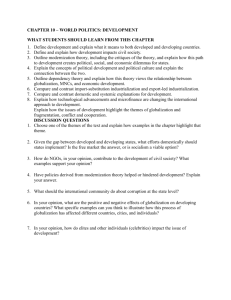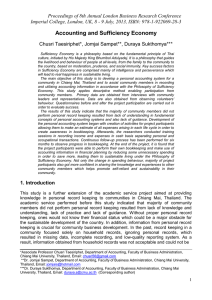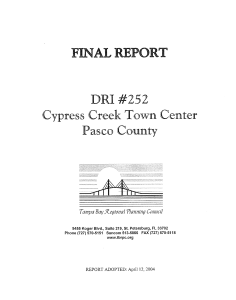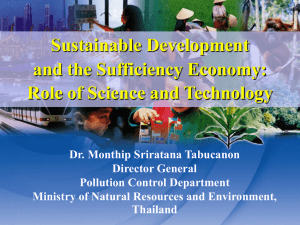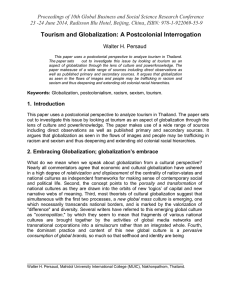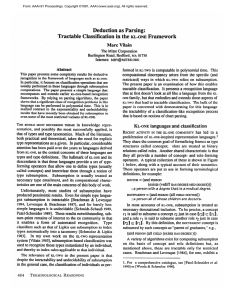UNU/UNESCO International Conference Globalization: Challenges and Opportunities for Science and Technology
advertisement
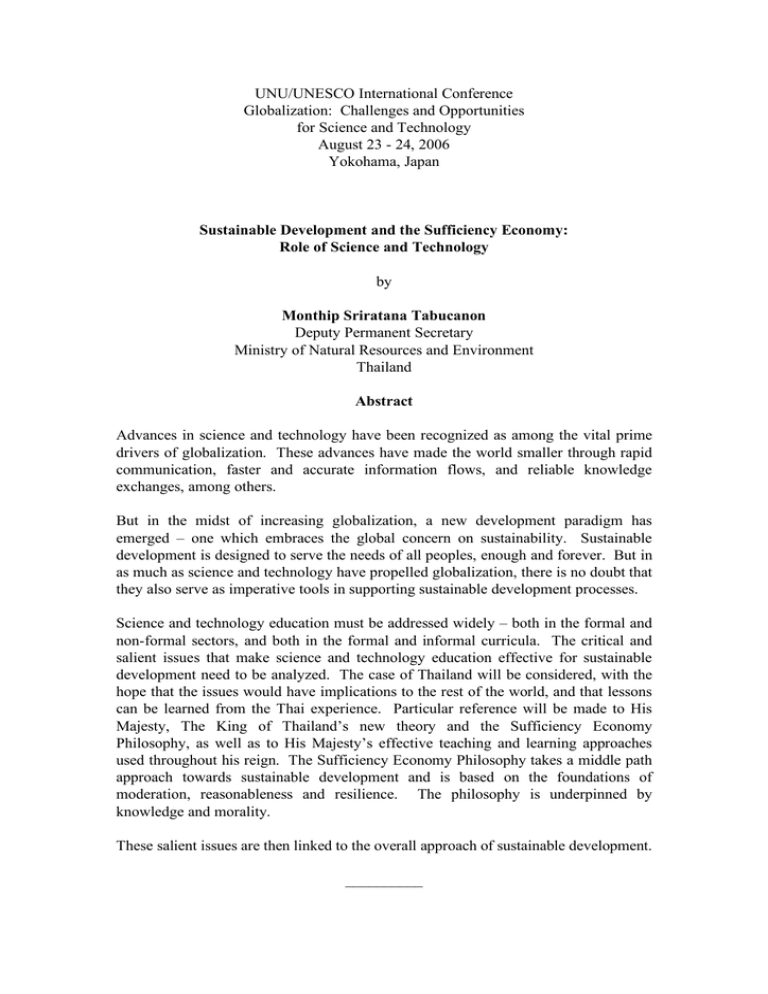
UNU/UNESCO International Conference Globalization: Challenges and Opportunities for Science and Technology August 23 - 24, 2006 Yokohama, Japan Sustainable Development and the Sufficiency Economy: Role of Science and Technology by Monthip Sriratana Tabucanon Deputy Permanent Secretary Ministry of Natural Resources and Environment Thailand Abstract Advances in science and technology have been recognized as among the vital prime drivers of globalization. These advances have made the world smaller through rapid communication, faster and accurate information flows, and reliable knowledge exchanges, among others. But in the midst of increasing globalization, a new development paradigm has emerged – one which embraces the global concern on sustainability. Sustainable development is designed to serve the needs of all peoples, enough and forever. But in as much as science and technology have propelled globalization, there is no doubt that they also serve as imperative tools in supporting sustainable development processes. Science and technology education must be addressed widely – both in the formal and non-formal sectors, and both in the formal and informal curricula. The critical and salient issues that make science and technology education effective for sustainable development need to be analyzed. The case of Thailand will be considered, with the hope that the issues would have implications to the rest of the world, and that lessons can be learned from the Thai experience. Particular reference will be made to His Majesty, The King of Thailand’s new theory and the Sufficiency Economy Philosophy, as well as to His Majesty’s effective teaching and learning approaches used throughout his reign. The Sufficiency Economy Philosophy takes a middle path approach towards sustainable development and is based on the foundations of moderation, reasonableness and resilience. The philosophy is underpinned by knowledge and morality. These salient issues are then linked to the overall approach of sustainable development. __________




